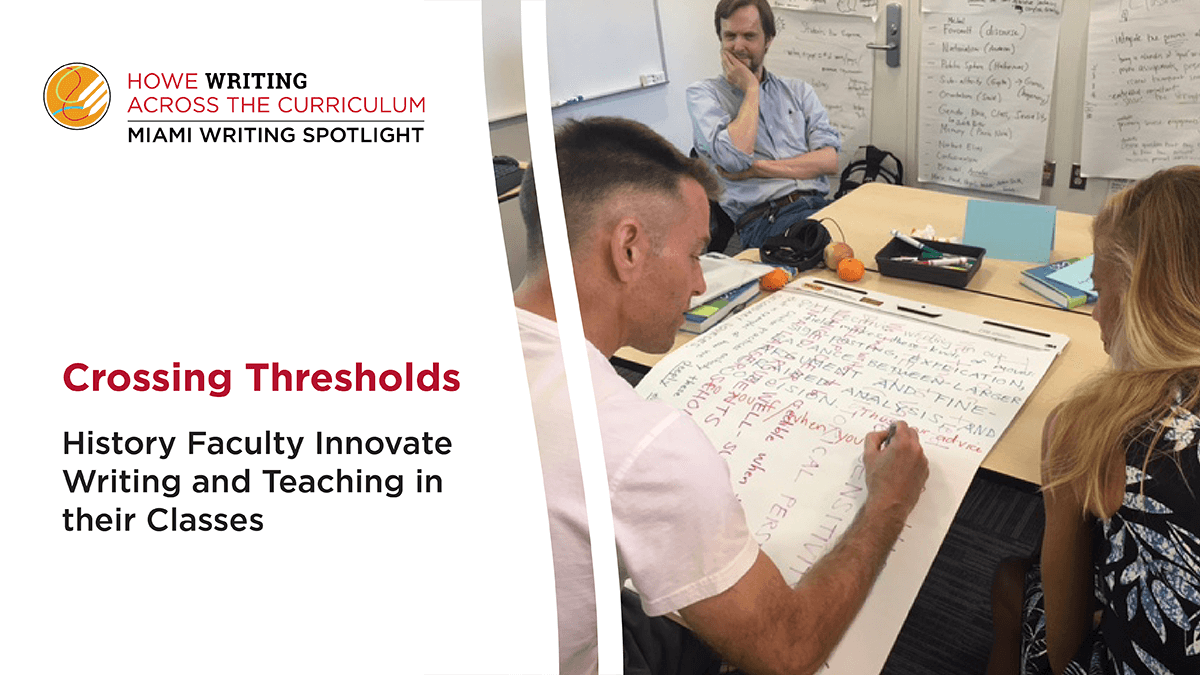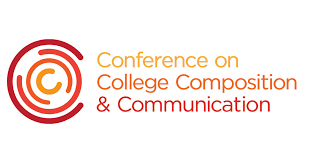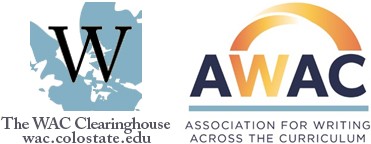Crossing thresholds: History faculty innovate writing and teaching in their classes
Faculty changed and adapted their pedagogies to accommodate new ways of writing and learning
The faculty have also found ways to use what they learned in the Fellows program to bolster their teaching practices.
Schakenbach Regele is currently teaching a course on the American Revolution. “It was nice to have the chance to imagine the series of courses and readings that serve as the tunnel through which students move until they finally emerge from the other side,” she tells me.
In other words, she has used what she learned in the Fellows program to construct experiences for students.
On the other hand, de Boer has changed his course to include more writing assignments and fewer exams. “I’ve tailored the assignments more narrowly,” he says, “particularly in the beginning so I can clarify better what the expectation is and what the purpose of the assignment is.”
As de Boer describes how his teaching practices have changed, Jensen jumps in excitedly. “It sounds like you're doing something similar to what I'm doing,” he says. “In the process of this workshop, the importance of feedback really came out,” he explains.
For a while, Jensen had been putting his major essay assignments at the end of his courses; however, after realizing the importance of regular feedback that students can incorporate, he changed his mind.
“I'm moving the large essay into the middle of the course so that I'm giving them feedback all along the way,” says Jensen. “Also, they get the feedback in class, and I require them to come and talk to me about it.”
Prior is teaching a course about Eurasian Nomads and History. He’s begun helping his students engage more with complexity. “I'm more comfortable really dealing with complexity as a subject in and of itself,” he says, “rather than something that I attempted to package to maybe even shield students from a little bit at the lower levels. It's really becoming a central focus. I’ve been taken by how engaged the students are at getting into the minutiae and complexity.”
Writing and teaching move forward in the History department
De Boer plans on continuing to implement the ideas they learned in the Writing Fellows program into the ways of practicing and teaching in the History department.
“We are still very much at the beginning of this process,” he says. “The key question is how we institutionalize these ideas without making them an artificial thing.”
All of the faculty are keen on maintaining that initial excitement and freshness that came from working with their colleagues to uncover and apply new ideas.
In fact, all of the faculty stress the value of working with each other in teams during the Fellows program.
The faculty proudly hold their certificates upon graduating from the Fellows program
“Hopefully as many groups as possible end up signing up [for the Fellows Program],” says Schakenbach Regele.
The Faculty Writing Fellows program runs year round, with cohorts in fall, spring, and summer. Faculty who become fellows are eligible to apply for grants from the Howe Center for Writing Excellence for curriculum design, research, and assessment.
Additionally, Fellows become eligible to request a Howe Writing Center consultant to support their course. Departments can also request department liaisons, in-class peer review training, and GA training, all of which History has taken advantage of.
Reference
- Ray Land, Glynis Cousin, Jan H. F. Meyer, and Peter Davies. "Threshold Concepts and Troublesome Knowledge (3)*: Implications for Course Design and Evaluation," in Improving Student Learning Diversity and Inclusivity, ed. C. Rust (Oxford: Oxford Centre for Staff and Learning Development), 54.
Howe Writing Across the Curriculum Programs
The mission of the Howe Writing Across the Curriculum Programs is to ensure that all Miami faculty and graduate teaching assistants can effectively include writing as a means to support learning in their courses and programs.


